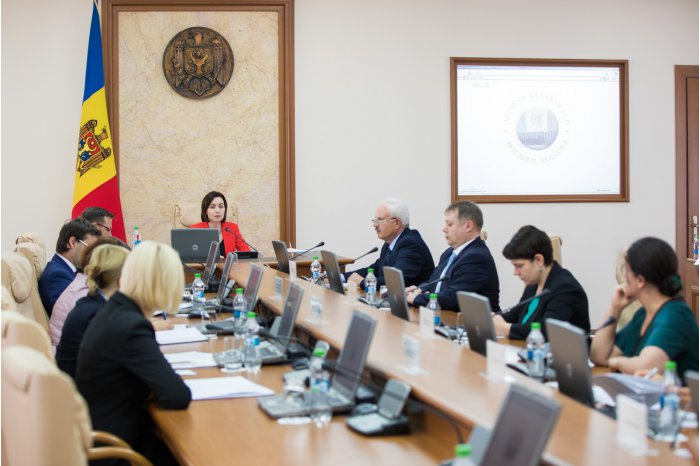Moldovan government gives positive note to law on de-offshorization
15:21 | 25.09.2019 Category: Economic
Chisinau, 25 September /MOLDPRES/ - The cabinet of ministers, at a today’s meeting, approved a draft law called the Law on de-offshorization. The draft provides for restrictions of participation in procedures of privatization, public-private partnership, public procurements and concessions of works and services for the legal entities founded by subjects from jurisdictions which do not observe the international transparency standards.
Also, the legal entities having persons registered or with residence in such jurisdictions will fall under this interdiction too.
The National Bank of Moldova (BNM), as well as the National Commission for Financial Market (CNPF) approve the list of jurisdictions which do not implement the international transparency standards. The list approved by CNPF is a more extended one than in the case of BNM, as it includes also the countries posing a high degree of risk.
The Economics Ministry deems as relevant the draft law’ completion with norms which would determine the information and documents due to be submitted by participants in the transactions with the state, which would ensure the pertinent identification of the participant in transactions, including of the effective beneficiary, specific also for the international practices. The list of documents and the procedure of submitting them is proposed to be established by the government or the Service for the Prevention and Combating of Money Laundering.
These aspects are also in line with the EU’s recent concerns by the fact that the European Council adopted the EU’ Regulation on the establishment of a framework for the consideration of foreign direct investments in EU, as the foreign direct investments are more and more focused on certain sectors and on enterprises with larger dimensions and are coming, more and more often, from enterprises owned by another state or from investors presenting close relations with governments and certain influential persons. The risk consists in the fact that these investments might be made to the detriment of the security and public order of EU on the whole or its member states, through the control of the strategic directions of one state by another state or by certain influential persons.
The draft law imposes restrictions of participation in the process of privatization, granting to concession, public procurements and public-private partnership and for effective resident beneficiaries of the jurisdictions which do not implement the international transparency standards. The Economics Ministry proposes the draft’s completion with the notion “effective beneficiary” – private person who owns or controls, in the last analysis, a private person or legal entity or beneficiary of an investment company or manager of an investment company or a person on whose behalf an activity is carried out or a transaction is made and/or who has, directly, or indirectly, the right of property or control over at least one percent of the shares or of the right to vote of the legal entity.
Decision-makers also suggest the implementation of measures to avoid risks of post-contracting transfer of the obligations and tasks of carrying out contracts on public procurement, public-private partnership and concession of works and services by the direct contractor to a third person.
The parliament is to discuss the draft law at a plenary meeting.

